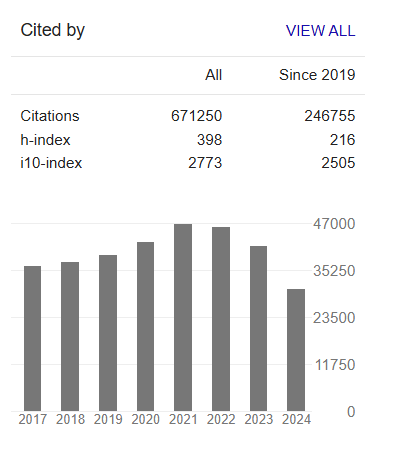Influence of Environmental Condition, Residential Nature and Socio-Cultural Values of the Community on the Prevalence of Hepatitis-B Infection in Kaduna State-Nigeria
Abstract
Sagir Musa Hassan and Yahya Saleh Ibrahim
Hepatitis is a liver inflammation which causes a variety of health challenges and can be highly fatal. Basically, there are five (5) main strains of the hepatitis virus namely types A, B, C, D and E. Although all the types cause liver related disease, however they essentially differ in a way, such as mode of transmission, geographical distribution, severity of the illness, and methods of prevention, Types B and C in particular lead to chronic disease in hundreds of millions of people and, together, are the most common cause of liver cirrhosis, cancer and viral hepatitis infection. It should however be noted that some hepatitis types are preventable by vaccination. This therefore, made this study relevant with increase in the global occurrences hepatitis among women, children and adults in most developed and developing societies. The study uses purposive sampling techniques with 316 sample size, an inferential statistics was applied using SPSS package version 23, to analyse the responses from the questionnaires receipt from the field. The results of this study suggested that there is significant negative impact of Environmental Health Condition (ECH), and Social and Cultural Nature (SOCN) on the prevalence of hepatitis infection in Nigeria. The study has also established that Residential Nature (RESN), of women within reproductive age in Kaduna state have positively and significantly influence the prevalence of hepatitis B virus (HBV) infection within the period of the study. Also, the study has suggested that Social and Cultural Nature (SOCN) of the community have significantly influence the prevalence of hepatitis infection among women of child bearing age in Kaduna state (in the study area). The results of the study shows that environmental conditions, residential nature as well as social and culture nature or values of the communities significantly influence the prevalence of hepatitis B virus (HBV) infection in Kaduna state. It is recommended policy direction towards eradication or elimination of the prevalence of hepatitis in the identified communities should targets improve environmental condition, promotion of positive socio-cultural behaviours that reduce the risks factors associated with hepatitis infection prevalence and houses and residential estates should respond to the conditions that warrants the prevalence of hepatitis such as changing our drainage system and improve on our sanitary facilities and location.




